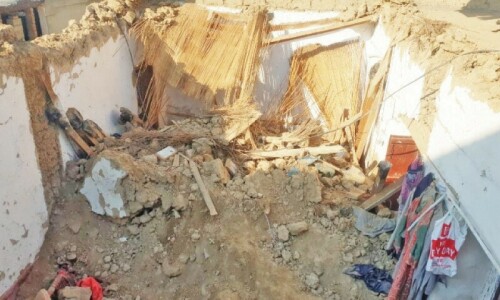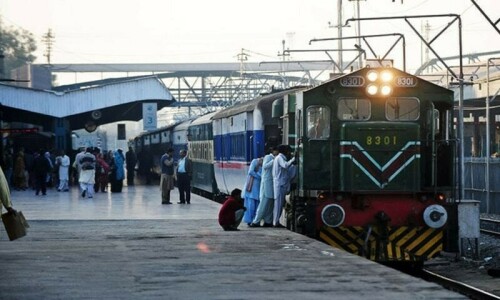ISLAMABAD: The Oil Tankers Contractors Association (OTCA) called off their strike on Tuesday after all provincial governments agreed to put in abeyance collection of general sales tax on oil tanker services at multiple stages till June 30.
The strike caused a great deal of public inconvenience especially in a metropolis like Karachi where long queues of motorists and bikers were seen outside many petrol stations.
A nine-member committee comprising representatives of four provinces, the federal government, oil tanker owners and oil marketing companies (OMCs) will work out a single-stage GST collection formula for sharing among the provinces. The formula will be provided legal cover through finance bills of the provincial assemblies in June.
An agreement to this effect was reached at a meeting presided over by Petroleum Secretary Arshad Mirza and attended by revenue board officials of Sindh, Punjab and Khyber Pakhtunkhwa and delegations of the OMCs and the OTCA. The Balochistan government conveyed through telephone that it would abide by the decision.
Provinces agree to suspend GST collection on tanker services till June when the issue will be finally resolved
As a result, the tankers immediately started movement of oil products they had suspended on Monday, resulting in dry-out situations at retail outlets in some cities on Tuesday as consumers resorted to panic buying.
A petroleum ministry official told Dawn that the problem had emerged because of the Sindh law requiring GST on tanker services at source and Punjab, KP and Balochistan at receipt/destination, resulting in ‘multiple taxation of a same service’. This will now be tackled through collection at one stage and sharing it with provinces.
As the provinces had imposed GST on services through their finance bills, any change can also be made through the next year’s finance bills by the provincial assemblies after bringing about a procedural clarity.
OTCA president Raja Mohammad Saeed and general secretary Noman Butt told journalists that they were now ending the strike after assurance by all the governments that the controversial tax collection had been held in abeyance till June 30. They said the committee would now work out a formula under which the OMCs would collect GST on services at one stage as a collection agent on behalf of oil tankers without disturbing them at various stages.
Mr Saeed said different provinces had applied 14 to 15 per cent GST rates and for oil tankers it worked out at 48pc for movement from one province, crossing through another and reaching the third province.
Earlier, Petroleum Minister Shahid Khaqan Abbasi said there was no justification for collection of same tax at different places and the provinces should find out a workable solution to end double taxation.
The federal government swung into action on Friday when OTCA office-bearers reported that some major cities had stocks of petroleum products for only four to six days and a strike could immediately break down the supply chain and cause public unrest.
The issue had emerged following imposition of GST on tanker services by the provinces without input tax adjustment settlement at the federal level. The Sindh government was the first to bring oil tankers under the ambit of sales tax on services, followed by Punjab, Balochistan and KP in that order.
The federal government had previously engaged the four provincial chief secretaries, the federal finance secretary and the chairmen of the Federal Board of Revenue, the OTCA, the Oil Companies Advisory Council and the Oil and Gas Regulatory Authority to resolve the issue, but to no avail.
The provinces were, nevertheless, persuaded to keep postponing the collection of sales tax from oil tankers.
The provincial governments, particularly of Punjab and Sindh, and the FBR have paid little attention to a distribution formula for sales tax collection at different places on different services.
The provinces have levied sales tax on services of inter-city transportation or carriage of goods by road or through pipeline or conduit.
This was the fourth strike call by the OTCA on the issue in about 10 months. Every time it was postponed on the assurances of the petroleum ministry to address their genuine grievances.
But, the ministry has little role on the issue, except that it is exposed to fuel supply disruptions, as revenue matters have to be settled by the finance ministry and the FBR in consultation with the provincial governments.
The critical point of dispute over sales tax on transportation/carriage services is between Punjab and Sindh. Punjab collects sales tax at destination and Sindh at the origin for obvious reasons. But transporters end up paying the same tax at different points.
To top it all, the federal government has disallowed input tax adjustment against provincial sales tax collection on different services through an amendment to its sales tax laws in June last year.
The stakeholders need to agree on some middle point to be followed by amendments to the provincial sales tax laws.
Published in Dawn, April 5th, 2017















































Dear visitor, the comments section is undergoing an overhaul and will return soon.